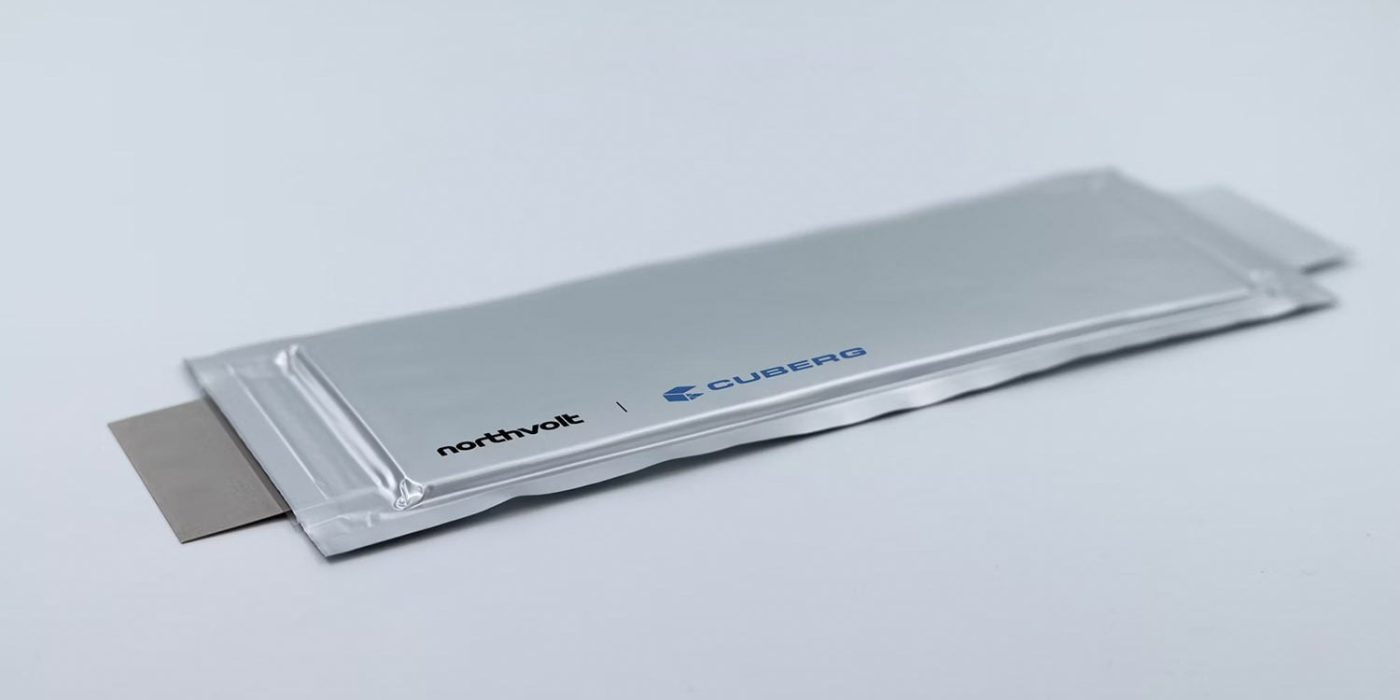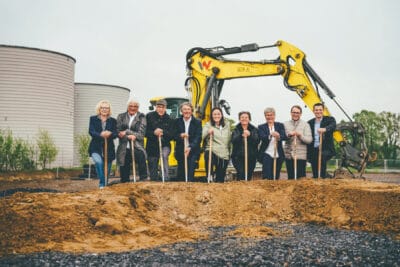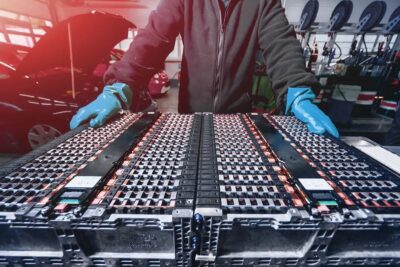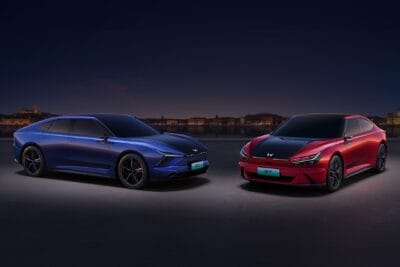Northvolt launches aviation battery system development via Cuberg
Northvolt subsidiary Cuberg reports progress in developing its lithium metal batteries as it is now embarking on developing a fully integrated high-performance battery system for aviation.
Cuberg first published externally validated performance data on its lithium metal cell technology in July 2022 and has now produced a 20 Ah lithium metal pouch cell in a commercial format, Northvolt informs. The company specifies energy of 405 Wh/kg and, based on this, a battery module for aviation with 280 Wh/kg and 320 Wh/L, respectively.
Northvolt acquired the US company in March 2021. Cuberg had expanded its production facilities in the San Francisco Bay Area after the acquisition and had demonstrated that lithium metal cells could be manufactured using the same production processes as current lithium-ion batteries.
At the time, their 5.1 Ah cell with an energy density of 380 Wh/kg had achieved a lifetime of 672 cycles. In other words, the cell was charged and discharged 672 times before the energy content dropped to 80 per cent of the original value. Still, it was not ready to be sent to customers.
However, with Cuberg having reached the next step, which Northvolt expected them to reach, the 20 Ah cells in commercial format have already been sent to aerospace customers “worldwide,” as Northvolt adds. Wes Andrews writing on behalf of Cuberg added, they had in fact shipped “large volumes” of their 5.1 Ah cell to customers.
“The aviation industry is pursuing cleaner forms of energy and propulsion, but aircraft manufacturers are held back by the weight and immaturity of aviation-certifiable lithium-ion battery systems,” says Richard Wang, Cuberg CEO and Founder. “With this new program, we will build certifiable battery systems enabling greatly enhanced aircraft performance and deliver a trusted end-to-end solution backed by one of the world’s preeminent battery manufacturers.”
Cuberg’s customers include Boeing, BETA Technologies, Ampaire and VoltAero. Boeing acquired a stake in Cuberg in early 2018.
When Northvolt acquired the company three years later, the Swedes considered their technology a “breakthrough”. They said the cells delivered more than 70 per cent increased range and capacity versus comparable lithium-ion cells designed for electric aviation applications.
Cuberg is a Stanford University spin-off which started in 2015 to work on “next-gen battery technology” with a particularly high energy density and thermal stability based on a liquid electrolyte combined with a lithium metal anode. The lithium metal module platform has since achieved passive propagation resistance during a thermal runaway verification test campaign, a key step in the certification of aviation battery systems, so Cuberg.
Cuberg and Northvolt are not the only ones targeting the emerging market around zero-emission aviation. A week ago, CATL showed novel Condensed Battery technology in Shanghai, explicitly addressing electric aircraft applications. The battery claims an energy density of 500 Wh/kg at the cell level, with series production to start this year.
As for Northvolt, the company has the ambition for Cuberg to industrialise cells in 2025 that exceed 400 Wh/kg in high-performance markets, spokes person Andrews informed us. A previous version of this article had compared CATL with Northvolt’s target for a 1,000 Wh/kg battery, however, in automotive-focused cell technology. In comparison, current vehicle batteries achieve 200 to 300 Wh/kg.





1 Comment